Marine Engineering Faculty in Tokyo University of Marine Science and Technology
Electric Power System Lab. 
Research themesResearch themes
Estimation and evaluation of the battery system applying to onboard AC electric system for improving fuel economy
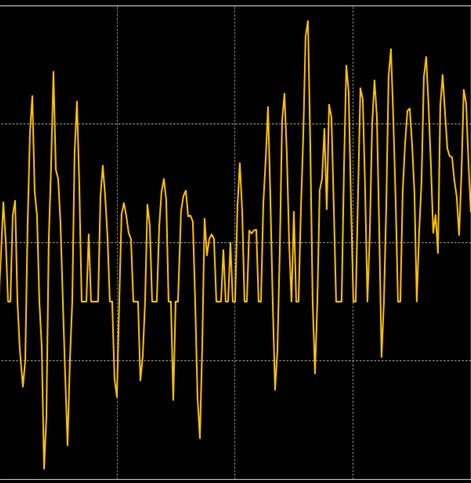 General on-board electric grid is the three phase AC system in large mercantile
marine vessels as well as the on-land electric system, because various
electric machines has been developed and improved on the basis of the three
phase AC theory. Some researchers and engineers see another outlook in
terms of on-board electric system. DC electric system may have a potential
to replace AC system of certain part of industries in the future. It is
thought that DC electric system can improve fuel economy of on-board electric
system with diesel engine generators and other alternative power source
like the fuel cell. Especially, the large capacity battery system is expected
to take an important role for saving the fuel consumption. However, DC
system costs on various components which are connected to heavily. The
short circuit protection technology is still one of the technical challenges
for the large on-board electric system, which means that it will take time
to be accepted for large mercantile marine vessels.
General on-board electric grid is the three phase AC system in large mercantile
marine vessels as well as the on-land electric system, because various
electric machines has been developed and improved on the basis of the three
phase AC theory. Some researchers and engineers see another outlook in
terms of on-board electric system. DC electric system may have a potential
to replace AC system of certain part of industries in the future. It is
thought that DC electric system can improve fuel economy of on-board electric
system with diesel engine generators and other alternative power source
like the fuel cell. Especially, the large capacity battery system is expected
to take an important role for saving the fuel consumption. However, DC
system costs on various components which are connected to heavily. The
short circuit protection technology is still one of the technical challenges
for the large on-board electric system, which means that it will take time
to be accepted for large mercantile marine vessels.
Our research group see different way to use the battery system. AC electric system can be upgraded in terms of fuel economy and reducing work load by employing the battery system. We focus on the operational characteristics of four-stroke diesel engine as the prime mover for generators in order to improve fuel economy. We have implemented an original simulation we have developed to clarify the pros and cons of adopting the battery system to AC system from the view point of data science based on the observed big data of the research vessels.
Click here for the presentation paper
Scientific approach based on the observed big data for clarifying the characteristics of controllable pitch propeller
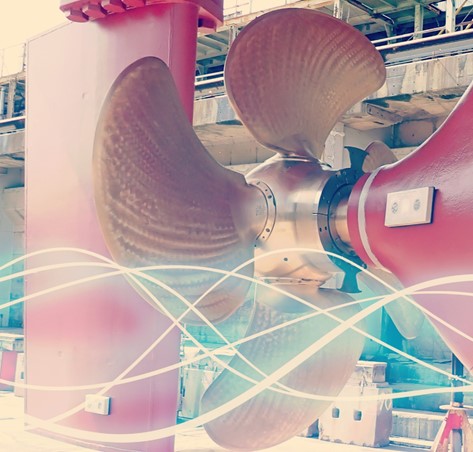 We are often asked "Why did you start the research on propellers?",
because our laboratory mainly focus on the electric power. It's natural
people think so. We have done several research on the hybrid propulsion
system for large vessels. Then we came to think that it is preferable to
grasp the characteristics of the propeller, although the hydro-dynamics
is out of our field of expertise. We want to be flexible and adaptable
to new topics! We decided to analyze the propeller's behavior in actual
sea condition by using big data which has been observed in the research
vessels belonging to our university. We have figured out astonishing fact
through the analysis. We are going to publish our research results in order.
We are often asked "Why did you start the research on propellers?",
because our laboratory mainly focus on the electric power. It's natural
people think so. We have done several research on the hybrid propulsion
system for large vessels. Then we came to think that it is preferable to
grasp the characteristics of the propeller, although the hydro-dynamics
is out of our field of expertise. We want to be flexible and adaptable
to new topics! We decided to analyze the propeller's behavior in actual
sea condition by using big data which has been observed in the research
vessels belonging to our university. We have figured out astonishing fact
through the analysis. We are going to publish our research results in order.
Click here for the presentation paper
A research of virtual engineer with AI technology for small fishery boat
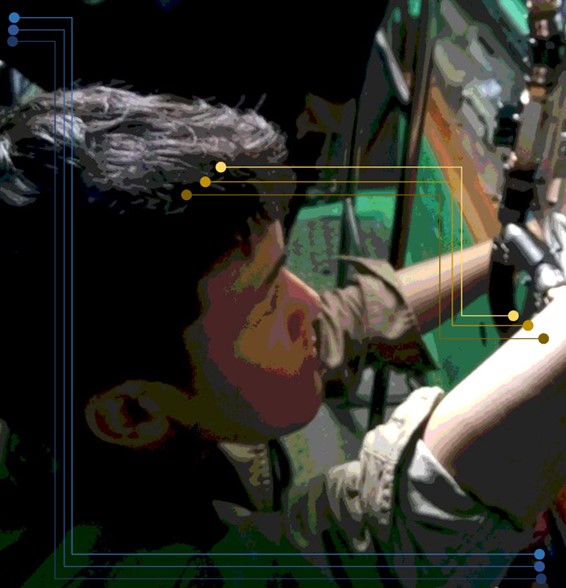 Most of Japanese fishery boats are classified to the "small boat"
which is less than 20 tons. These small boats are not required to employ
the marine onboard engineers who have appropriate certification. It leads
the operational cost to be low. On the other hand, we often see troubles
relating to the engines and generators on small boat due to lack of maintenance.
Fisher man seems not to have fuel saving mind in their operation. To approach
these issues, we are thinking to provide new services to monitor the state
of engine and to give captain some suggestions of maintenance work by using
IT (information technology). This technology needs to have high performance
to learn the state of engine's operation and to estimate what is caused
on the power plant of boat. We believe AI (artificial intelligence) technology
suits for realizing our scope. We've just started the research activity
with cooperation of a certain fishery technology research center.
Most of Japanese fishery boats are classified to the "small boat"
which is less than 20 tons. These small boats are not required to employ
the marine onboard engineers who have appropriate certification. It leads
the operational cost to be low. On the other hand, we often see troubles
relating to the engines and generators on small boat due to lack of maintenance.
Fisher man seems not to have fuel saving mind in their operation. To approach
these issues, we are thinking to provide new services to monitor the state
of engine and to give captain some suggestions of maintenance work by using
IT (information technology). This technology needs to have high performance
to learn the state of engine's operation and to estimate what is caused
on the power plant of boat. We believe AI (artificial intelligence) technology
suits for realizing our scope. We've just started the research activity
with cooperation of a certain fishery technology research center.
Click here for the presentation paper
High frequency inverter for the induction heating applications
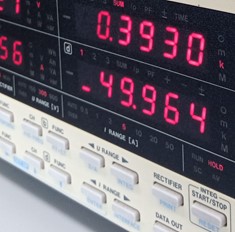 You may have heard about “IH” or “Induction Heating” which is a one of
contactless heating technology. It has become more popular to use IH cooking
heater as a home appliance and professional use for restaurants. Induction
heating technology is widely used for not only kitchen tools but also various
industries like car industries, ship building, machinery manufactures,
and other industries using the metals. It is necessary to employ the high
frequency inverter to implement the induction heating. Temperature of heated
materials can be controlled by the high frequency inverter. Our research
team has developed high power, high efficiency, and high-performance inverter
for the induction heating applications. We have also supported and collaborated
with several companies to develop and to improve their products relating
to the high frequency inverter for various induction heating applications.
You may have heard about “IH” or “Induction Heating” which is a one of
contactless heating technology. It has become more popular to use IH cooking
heater as a home appliance and professional use for restaurants. Induction
heating technology is widely used for not only kitchen tools but also various
industries like car industries, ship building, machinery manufactures,
and other industries using the metals. It is necessary to employ the high
frequency inverter to implement the induction heating. Temperature of heated
materials can be controlled by the high frequency inverter. Our research
team has developed high power, high efficiency, and high-performance inverter
for the induction heating applications. We have also supported and collaborated
with several companies to develop and to improve their products relating
to the high frequency inverter for various induction heating applications.
Click here for the presentation paper
WPT(Wireless power transfer)
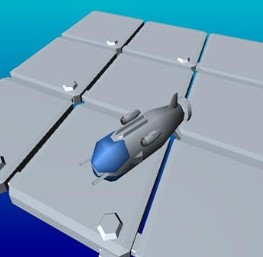 Lithium-ion batteries are applied as a power source for various applications
including underwater vehicles. It is not safety work for a diver to support
the picking up the underwater vehicle to the mother ship. To overcome this
problem, this laboratory proposed a multi-coil arranged wireless power
transfer systems for underwater vehicles. This system does not require
the restricted position of the underwater vehicle. Then, this research
topic discussed a operation method of the high-frequency inverter and rectifier
to realizing the independently operation of them.
Lithium-ion batteries are applied as a power source for various applications
including underwater vehicles. It is not safety work for a diver to support
the picking up the underwater vehicle to the mother ship. To overcome this
problem, this laboratory proposed a multi-coil arranged wireless power
transfer systems for underwater vehicles. This system does not require
the restricted position of the underwater vehicle. Then, this research
topic discussed a operation method of the high-frequency inverter and rectifier
to realizing the independently operation of them.
Click here for the presentation paper
AC-DC(Battery charging circuit)
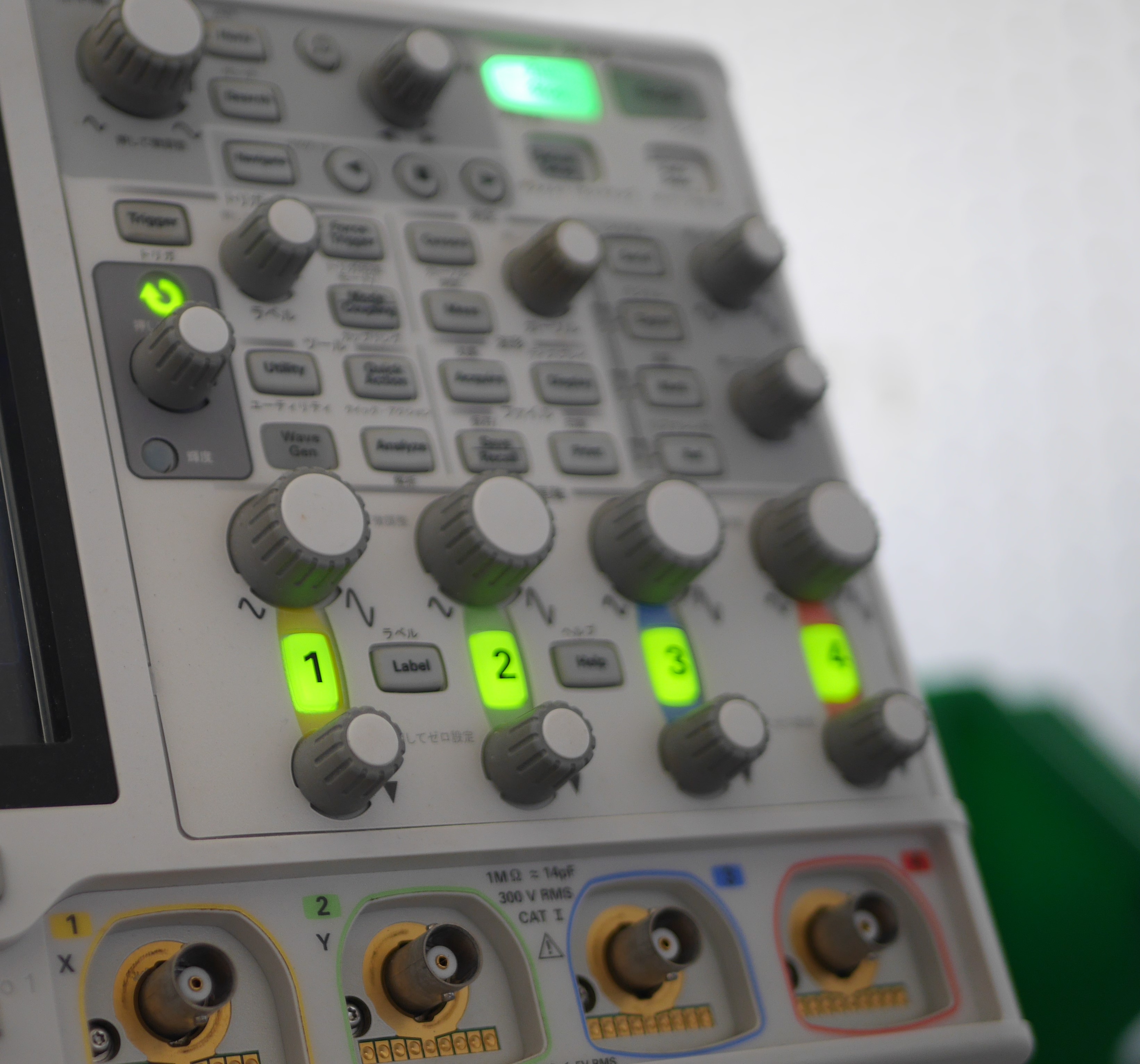 Battery charging circuits require electrical isolation for safety, sine
wave of power supply current, and control of output power (current) at
the same time. In addition, when using a battery charging circuit in a
general household, power is obtained from single-phase ALTERNATING current
such as an outlet, so it is also required to absorb the power pulsation
of single-phase AC in the battery charging circuit. On the other hand,
in order to satisfy these requirements at the same time, it is often required
to connect multiple power converters and complex control, and large-capacity
capacitors are required for absorption of power pulsations, which hinders
the miniaturization and longevity of equipment. In this laboratory, we
propose a configuration of a circuit that can realize miniaturization of
charging circuits for electric vehicles, and are examining the control
method.
Battery charging circuits require electrical isolation for safety, sine
wave of power supply current, and control of output power (current) at
the same time. In addition, when using a battery charging circuit in a
general household, power is obtained from single-phase ALTERNATING current
such as an outlet, so it is also required to absorb the power pulsation
of single-phase AC in the battery charging circuit. On the other hand,
in order to satisfy these requirements at the same time, it is often required
to connect multiple power converters and complex control, and large-capacity
capacitors are required for absorption of power pulsations, which hinders
the miniaturization and longevity of equipment. In this laboratory, we
propose a configuration of a circuit that can realize miniaturization of
charging circuits for electric vehicles, and are examining the control
method.
Click here for the presentation paper
DC-DC
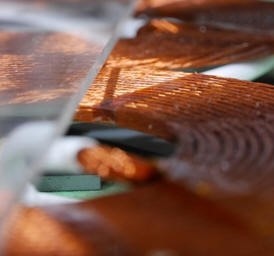 DC-DC converters (DC-DC converters) can be widely separated into insulated
shapes that insulate between inputs and outputs and non-insulated forms
that do not insulate, and are a theme that many powerele researchers are
studying. In recent years, research on dc-dc converters with high frequency
insulation is active, and various DC-DC converters have been studied. In
our laboratory, we are conducting research on insulated DC-DC converters
combining high-frequency inverters based on our research results on power
supplies for induction heating. In addition, the system configuration which
extended the isolated DC-DC converter is also under consideration.
DC-DC converters (DC-DC converters) can be widely separated into insulated
shapes that insulate between inputs and outputs and non-insulated forms
that do not insulate, and are a theme that many powerele researchers are
studying. In recent years, research on dc-dc converters with high frequency
insulation is active, and various DC-DC converters have been studied. In
our laboratory, we are conducting research on insulated DC-DC converters
combining high-frequency inverters based on our research results on power
supplies for induction heating. In addition, the system configuration which
extended the isolated DC-DC converter is also under consideration.
Click here for the presentation paper
Hybrid propulsion system for Tugboat
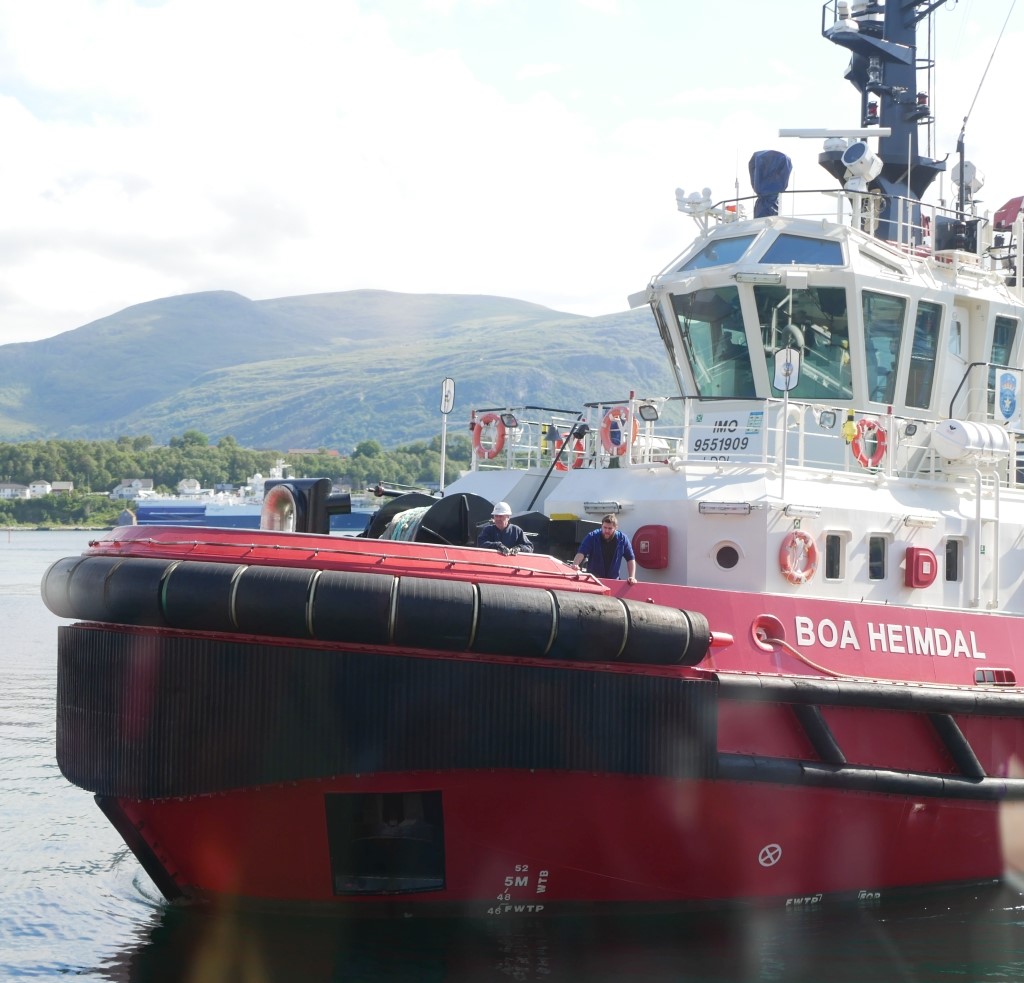 You can see the tugboats around the large terminal port. The tugboat has
two or three high-power engines regardless the hull size is not big. It
works as the support ship so that extremely large vessels berth on/off
their port in safe. The high-power engines are useful to push and pull
the large vessels. However, it is not always necessary to provide maximum
power because the tugboat’s operation is often suspended, and the waiting
time is longer than the operation time. Providing the power appropriately,
smoothly, and effectively is the first step for saving fuel. We believe
that the hybrid propulsion system gives some solutions to this issue. We
had studied the hybrid propulsion system and its characteristics on the
fuel consumption. (This research topics were already finished.).
You can see the tugboats around the large terminal port. The tugboat has
two or three high-power engines regardless the hull size is not big. It
works as the support ship so that extremely large vessels berth on/off
their port in safe. The high-power engines are useful to push and pull
the large vessels. However, it is not always necessary to provide maximum
power because the tugboat’s operation is often suspended, and the waiting
time is longer than the operation time. Providing the power appropriately,
smoothly, and effectively is the first step for saving fuel. We believe
that the hybrid propulsion system gives some solutions to this issue. We
had studied the hybrid propulsion system and its characteristics on the
fuel consumption. (This research topics were already finished.).
Click here for the presentation paper
Small boat with lithium-ion battery
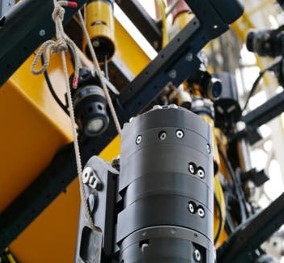 Lithium-ion battery has become popular, available, and affordable in this decade. It has good performances on its power density and energy density rather than other type of battery. It is nature that not only the car industry but also the marine industry pay attention to the lithium-ion battery as the power source of mobility. Our team has started feasibility study of the power system with the lithium-ion battery. Based on the evaluation of the study, we designed and built the first battery boat “RAICHO-1” which has a pure electric propulsion system with lithium-ion battery conforming to the rapid charging protocol in 2009. A part of our team member designed and built battery boats “RAICHO-S”, “RAICHO-N” and other small boats. Some of them has been already entered into their services. We had studied the energy management method for the small battery boat.
Lithium-ion battery has become popular, available, and affordable in this decade. It has good performances on its power density and energy density rather than other type of battery. It is nature that not only the car industry but also the marine industry pay attention to the lithium-ion battery as the power source of mobility. Our team has started feasibility study of the power system with the lithium-ion battery. Based on the evaluation of the study, we designed and built the first battery boat “RAICHO-1” which has a pure electric propulsion system with lithium-ion battery conforming to the rapid charging protocol in 2009. A part of our team member designed and built battery boats “RAICHO-S”, “RAICHO-N” and other small boats. Some of them has been already entered into their services. We had studied the energy management method for the small battery boat.
(This research topics were already finished.)
Click here for the presentation paper
Development of original simulation for evaluating fuel consumptions characteristics on the hybrid propulsion system for large vessels
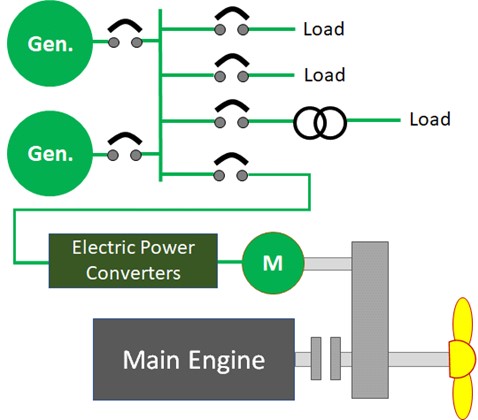 The hybrid car and electric vehicle have been developed and become popular
in the car industry. In these days, we see several projects to build large
vessels with electric propulsion system in marine industry as well. However,
several project look not to implement analysis and evaluation to their
propulsion system in terms of the fuel consumption characteristics, especially
compared to the conventional system. In order to develop true technologies
preventing the climate change, we need to review and discuss the performance
of the propulsion system from the view point of science. Our team has developed
an original simulation to evaluate the fuel consumption characteristics
of the propulsion system including the hybrid system.
The hybrid car and electric vehicle have been developed and become popular
in the car industry. In these days, we see several projects to build large
vessels with electric propulsion system in marine industry as well. However,
several project look not to implement analysis and evaluation to their
propulsion system in terms of the fuel consumption characteristics, especially
compared to the conventional system. In order to develop true technologies
preventing the climate change, we need to review and discuss the performance
of the propulsion system from the view point of science. Our team has developed
an original simulation to evaluate the fuel consumption characteristics
of the propulsion system including the hybrid system.
(This research topics were already finished.)
Click here for the presentation paper